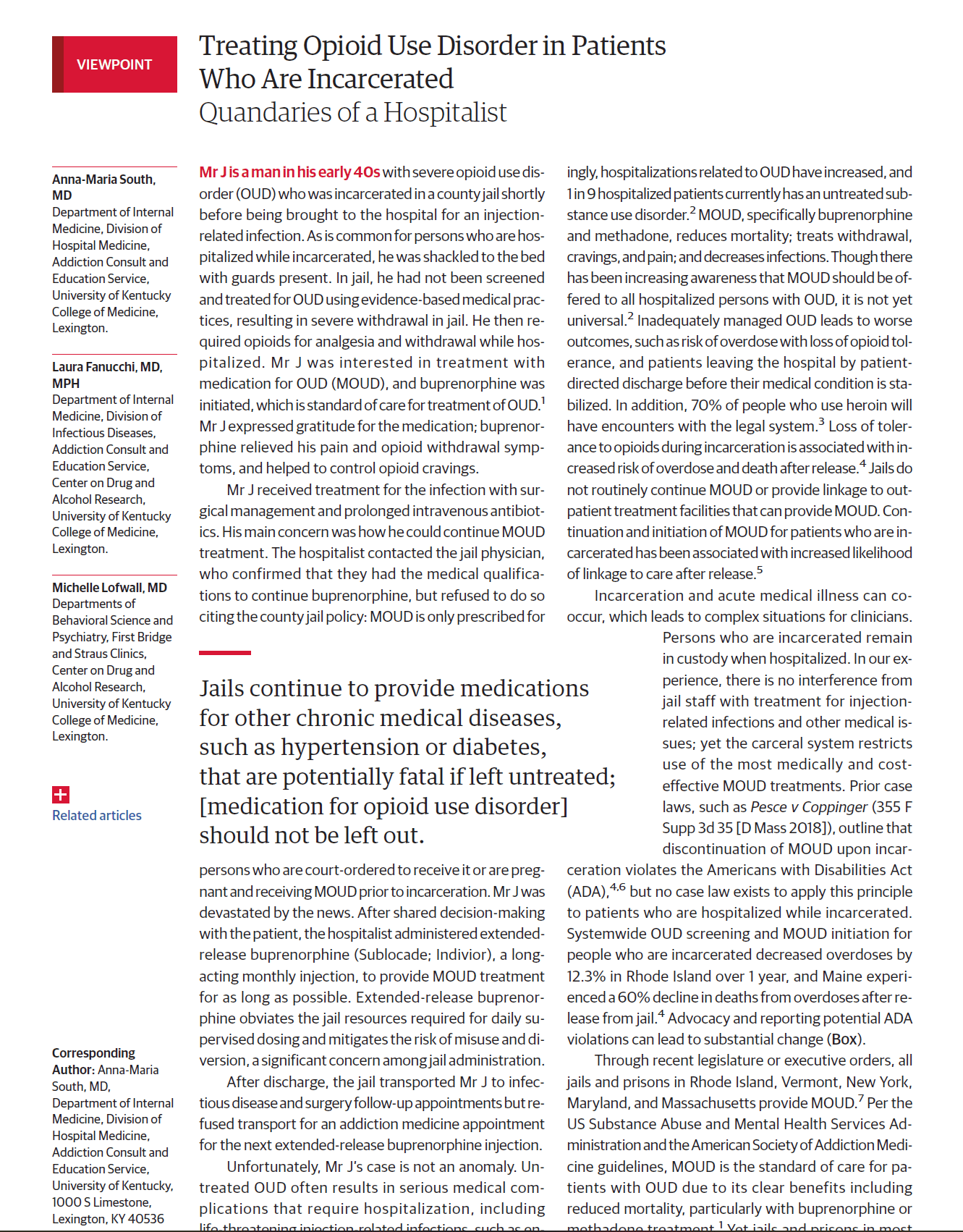Treating Opioid Use Disorder in Patients Who Are Incarcerated – Quandaries of a Hospitalist
"Mr J is a man in his early 40s with severe opioid use disorder (OUD) who was incarcerated in a county jail shortly before being brought to the hospital for an injection-related infection. As is common for persons who are hospitalized while incarcerated, he was shackled to the bed with guards present. In jail, he had not been screened and treated for OUD using evidence-based medical practices, resulting in severe withdrawal in jail. He then required opioids for analgesia and withdrawal while hospitalized. Mr J was interested in treatment with medication for OUD (MOUD), and buprenorphine was initiated, which is standard of care for treatment of OUD. Mr J expressed gratitude for the medication; buprenorphine relieved his pain and opioid withdrawal symptoms, and helped to control opioid cravings.
Mr J received treatment for the infection with surgical management and prolonged intravenous antibiotics. His main concern was how he could continue MOUD treatment. The hospitalist contacted the jail physician, who confirmed that they had the medical qualifications to continue buprenorphine, but refused to do so citing the county jail policy: MOUD is only prescribed for persons who are court-ordered to receive it or are pregnant and receiving MOUD prior to incarceration. Mr J was devastated by the news."
